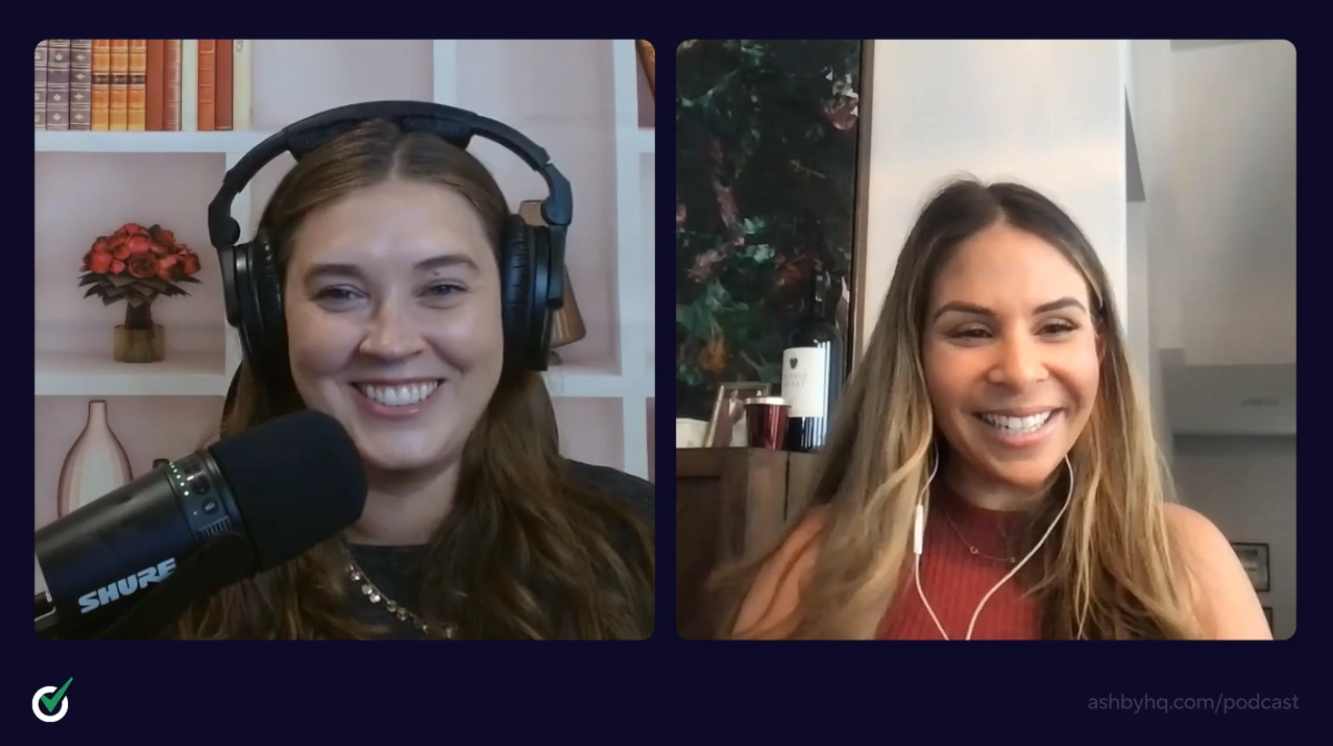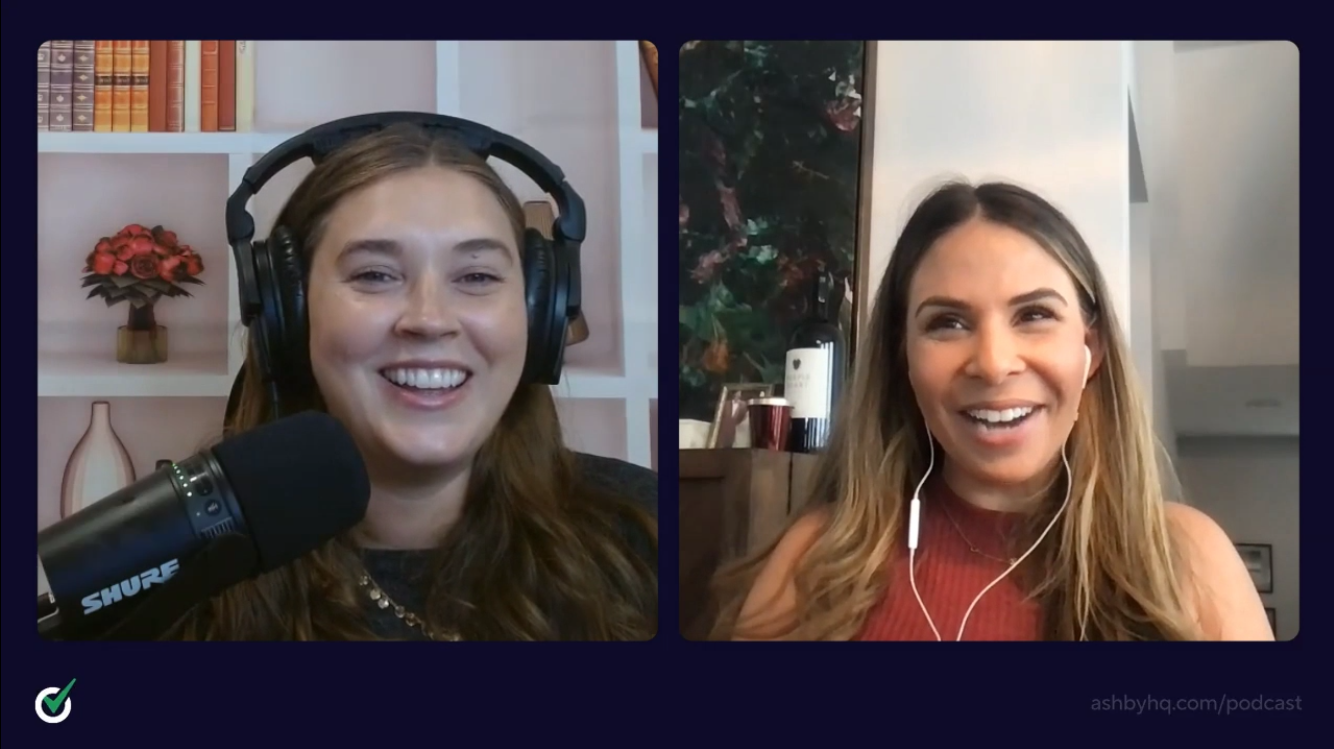The Art, Science, and Importance of Structured Interviewing
About this Episode
Heather Doshay is a seasoned talent leader and Partner at SignalFire, where she advises early-stage startups on hiring strategy, leadership, and company culture. Her background spans operating and advisory roles, including being the first executive hire at Webflow, VP of People, and an early team member at Hired. She also holds a doctorate in organizational leadership.
In this episode of Offer Accepted, Heather walks through the core components of structured interviewing and how to implement them effectively. She shares how to turn hiring manager conversations into usable scorecards, how to run kickoff meetings that get interviewers excited, and how to build trust with skeptics who think structure is too slow or too stiff. This conversation is packed with clear, actionable steps for talent leaders who want to improve the quality of hiring decisions without overcomplicating the process.
Topics
This Episode's Guest
Heather Doshay
Partner @ SignalFire
Heather Doshay is a seasoned talent leader and Partner at SignalFire, where she advises early-stage startups on hiring strategy, leadership, and company culture. Her background spans operating and advisory roles, including being the first executive hire at Webflow, VP of People, and an early team member at Hired. She also holds a doctorate in organizational leadership.
Takeaway 1
Structure means better signal, not a robotic process 🎯
Structured interviewing comes down to three key elements: define what success looks like ahead of time, ask the same questions across candidates, and use a rubric to score answers. When done well, it improves decision quality, reduces bias, and creates a better experience for everyone involved.
Why It Matters:
Structured interviews are twice as predictive as unstructured ones. Candidates who go through them are 35% more satisfied, even when rejected. They also help teams get aligned earlier, preventing drawn-out hiring cycles or mis-hires driven by gut instinct.
Quick Tips
- Start by extracting five to eight competencies from the role. Use the job description, level expectations, and first-year goals to identify what success looks like. These inputs give you a foundation to build structured interview content before meeting with the hiring team.
- Create a rubric with clear scoring anchors. Heather recommends defining what a strong, medium, and weak answer looks like for each question. You do not need a five-point scale. Even a three-tier system helps calibrate feedback and improve clarity.
- Limit to three questions per 30-minute interview. Build in time for follow-ups and a natural flow. Heather advises this cap to prevent rushed conversations and ensure you get quality signal without sacrificing candidate comfort.
Takeaway 2
Influence starts with alignment, not authority 🤝
Structured interviewing often faces resistance. Heather sees three common objections: It takes too much time, it feels stiff, or the person believes they have good judgment with no guardrails. Instead of pushing back, she recommends guiding hiring managers through the process until they arrive at the structure themselves.
Why It Matters:
Buy-in does not come from decks and data alone. Founders, executives, and hiring managers are more likely to adopt structured interviews when they feel involved in shaping them. Heather uses coaching-style questions to help stakeholders realize structure is already what they are looking for. They just need the right container.
Quick Tips
- Turn the hiring manager’s vision into a usable scorecard. During intake, ask what success looks like six months into the role. Use their response to shape interview questions and rubrics. When managers see their own words reflected in the process, they are more likely to follow through.
- Pressure test their approach to evaluation. Ask how they plan to assess the qualities they just named. If the answers are vague or change midstream, use that moment to introduce structure as a way to drive consistency and confidence.
- Pilot with one team and scale from there. Heather recommends treating structure as part of your overall hiring philosophy. If full rollout is not realistic, choose a single function to try it out. Share results and use that momentum to expand to other teams.
Takeaway 3
Structure only works when the team follows through 🛠️
Most teams spend time building structured processes, but not enough time operationalizing them. Heather points out that structure only works if interviewers are engaged, understand their role, and follow through on expectations. Without that, even a well-designed process breaks down in practice.
Why It Matters:
Interviews are only as useful as the quality of the interviewers. When people are unclear on what they are evaluating or how to give feedback, the process becomes noisy and inconsistent. The good news is that interviewers can be trained. When you build shared ownership and reinforce expectations, the entire system becomes more reliable.
Quick Tips
- Run a kickoff meeting with the full slate of interviewers. Before interviews begin, bring the whole panel together to align on competencies, expectations, and process. Heather suggests treating it like a celebration, play music, bring snacks, or open with a team win. Use the moment to build excitement around the role, reinforce each interviewer’s importance, and make the process feel like a shared mission.
- Assign one or two competencies to each interviewer. Give every interviewer a focused area to assess, such as communication, problem-solving, or technical depth. When they know what they are looking for, they are more likely to engage and go deep.
- Use your ATS to send reminders and interview prep. Heather recommends reinforcing structure with pre-interview nudges. Include the interviewer’s assigned competency, the questions they are expected to ask, and a short candidate-facing script to explain how and why the interview is structured.
What Hiring Excellence Means to Heather
For Heather, Hiring Excellence is about building a high-performance organization with efficiency. That means making decisions that drive the right outcomes without wasting time, energy, or signal. A strong hiring process should be intentional, aligned to the business, and designed to optimize both speed and quality.
>> Watch the Clip

Heather's Recruiting Hot Take 🔥
The cover letter isn’t dead, at least not the right kind. Heather makes a sharp distinction between generic “to whom it may concern” letters and personalized narratives that clarify a candidate’s story. When a résumé doesn’t tell the full picture, a thoughtful cover letter can help identify overlooked talent, showcase communication skills, and build confidence that someone can do the job.

Timestamps
(00:00) Introduction
(00:43) Meet Heather Doshay
(03:02) The flaws of the traditional hiring process
(06:50) The science behind structured interviews and the research supporting them
(12:03) Addressing pushback on structured interviews
(18:52) Coaching hiring managers on structured interview adoption
(26:00) Navigating the emotional side of saying no to candidates
(31:38) Using follow-up questions to improve candidate evaluation
(37:05) Training vs. outsourcing interview training
Other Episodes
PTO Peace of Mind and more Insights from a Seasoned Recruitment Leader
In this episode of Offer Accepted, Shannon Ogborn talks with Melissa Grabiner, an HR and Talent Acquisition expert. They discuss PTO planning and management strategies to reduce burnout. Melissa highlights the importance of work-life balance, encouraging mental health days, implementing backup systems, and treating employees as equals to foster a supportive and productive work environment.
Crafting an Authentic EVP That Attracts and Retains
In this episode of Offer Accepted, Cara Brennan Allamano discusses the critical role of an Employer Value Proposition (EVP) in talent acquisition. She breaks down what an EVP is, who should own it, and how to create one that aligns with both organizational goals and employee expectations. Cara emphasizes the importance of authenticity, stakeholder alignment, and regular reevaluation of the EVP to ensure it remains relevant. She also highlights the tangible results of a well-executed EVP, such as improved hiring metrics, stronger retention, and reduced time-to-hire.

Join the Hiring Excellence movement
New episodes every month - subscribe here so you never miss out.
